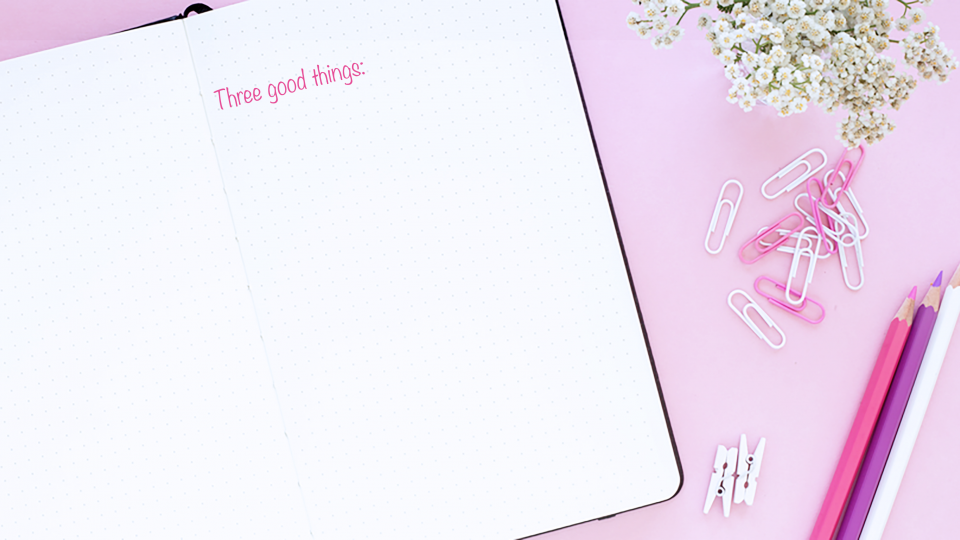
Along with the turkey and pie, giving thanks goes hand in hand with Thanksgiving. But can practicing gratitude beyond the Thanksgiving dinner table boost your well-being and help with anxiety and depression?
According to Dr. Carolyn Houk, an internal medicine physician at the UW Neighborhood Kent-Des Moines Clinic, it can.
“Studies have shown that having a gratitude practice can decrease burnout and depression, improve work-life balance, create less work conflict, create higher levels of happiness and improve sleep quality,” she says.
Houk offers up a gratitude practice you can try and explains why it’s important to focus on your mental health and wellness during the COVID-19 pandemic.
How to practice gratitude
What is gratitude? And what exactly does it mean to “practice gratitude?”
Gratitude is feeling thankful or appreciative. Practicing gratitude is intentionally appreciating what is valuable and meaningful to you.
One gratitude practice that Houk suggests is called “Three Good Things.” All you need is a few minutes a day and a journal to jot down your answers.
Here’s how to do it. Within two hours of going to sleep, write down your answer to these two questions:
- What are three things that went well today?
- What was your role in bringing them about?
Set yourself up to maintain this practice by keeping a notepad and pen handy or scheduling evening reminders on your phone.
“This practice is best performed before going to bed and doing it daily for two weeks or more,” Houk notes.
The value of practicing gratitude during COVID-19
Gratitude practices like “Three Good Things” can improve your mental health. One study found that the result of gratitude journaling led to improved well-being, including fewer health complaints and a more positive outlook on life.
It’s safe to say that as days get darker during the pandemic, focusing on your mental health and well-being is more relevant than ever.
“The colder weather, darker days, potential for pandemic surges, unemployment, political and social unrest, use of social media, and the holidays may also magnify depression and anxiety,” says Houk.
Because our world can feel particularly overwhelming and stressful right now, setting aside time to relax, exercise and practice gratitude are simple ways to give your mental health a little boost.
“It is important to focus on one’s own wellness and resilience so we can help ourselves and others around us,” says Houk.
Using gratitude as a check-in
Practicing gratitude daily is also a useful way to check in with how you’re feeling. Some days you might feel great and others you may notice yourself missing your pre-pandemic way of life. Recognizing those changes — and acknowledging that it’s OK to not feel OK 100% of the time — is healthy.
But if you find that your feelings of anxiety or depression are getting the better of you, talk with your doctor.
Houk says that symptoms of anxiety or depression can come in the form of losing interest in life, trouble sleeping or oversleeping, feelings of guilt or worthlessness, decreased energy and concentration, decreased appetite or overeating, feeling like you are talking or moving differently than usual, or having suicidal thoughts or ideas.
Other ways to boost your well-being
If you feel like your gratitude practice is giving you writer’s block instead of a mental health boost, there are other things you can do to support your well-being.
Houk points to activities recommended by the National Alliance on Mental Illness: walking in nature, reading, volunteering, practicing self-care, maintaining a healthy diet and keeping in touch with friends and family.
So, whether you try out a gratitude practice or opt for another activity that makes you happy, give thanks to yourself for taking time to care for you.
The info in this article is accurate as of the publishing date. While Right as Rain strives to keep our stories as current as possible, the COVID-19 pandemic continues to evolve. It’s possible some things have changed since publication. We encourage you to stay informed by checking out your local health department resources, like Public Health Seattle King County or Washington State Department of Health.

 Healthy ideas for your inbox
Healthy ideas for your inbox





